The most popular hands-on exhibit at the Green Bank Science Center is the infrared camera. Visitors can see themselves in heat waves, and folks love to marvel at how strange they and their friends and family appear in the usually-invisible light.
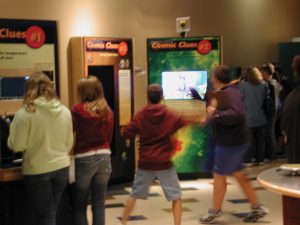
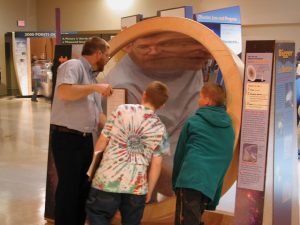
Where is the Focus?
All of our radio telescopes’ dishes are shaped into parabolas, because a parabola reflects waves to a precise focus. In the Green Bank Science Center, visitors can experiment with a parabolic mirror to try to find its exact focus.
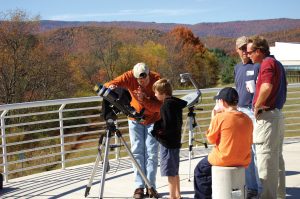
Safe Solar Observing at the Green Bank Science Center
During Open Houses at the Green Bank Science Center, visitors can safely view the Sun through specially-filtered telescopes. An “itty-bitty” radio telescope is also observing the Sun at the railing.
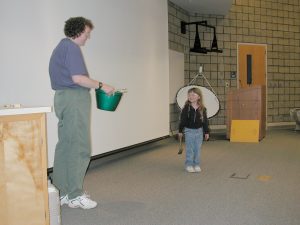
A Little Volunteer from the Audience
Every day at the Green Bank Science Center in West Virginia, staff give live presentations for our visitors. Sometimes, a demonstration requires a volunteer from the audience.
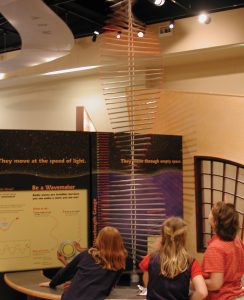
Making Waves
Visitors to the Green Bank Science Center can explore how waves change their frequency by cranking up or down the movement of this wave model. The more energy they put into the crank, the faster the wave changes, and the frequency is increased.
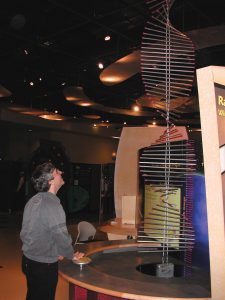
Not Just for Kids
The Green Bank Science Center in West Virginia has a hands-on activity center with exhibits explaining radio astronomy and its unique technology. The experience is fun for all ages!





